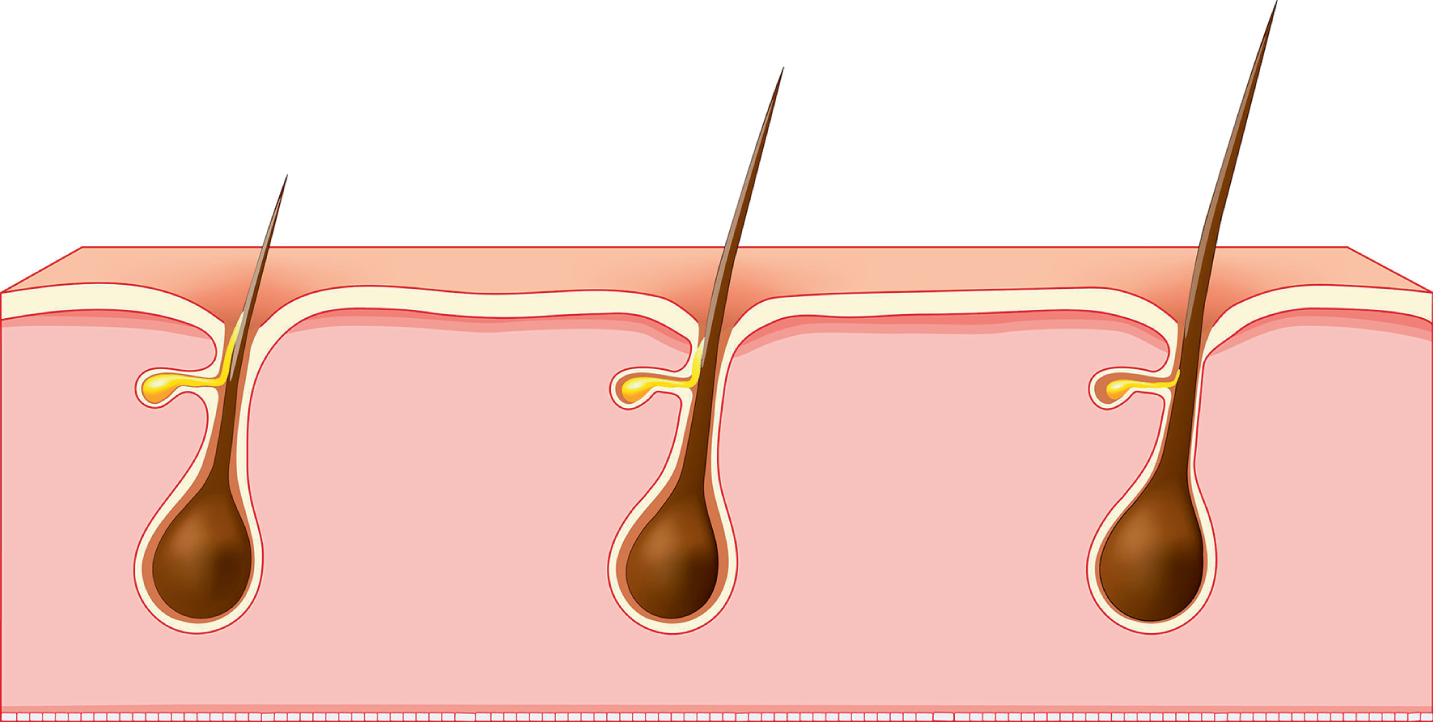
How Immune Health Influences Your Hair Growth Cycle
The immune system is an organ system responsible for protecting the body from diseases and pathogens. Nevertheless, besides conducting this crucial role, the human immune system controls other bodily activities like regrowing hair. Research shows how different immune processes, including inflammation and autoimmunity, impact the hair follicle cycle. In this blog, we will unravel the role of the hair immune system's regrowth and assess the scientific findings.
Hair Follicle Immune Response
A unique feature is that hair follicles are 'immunoprivileged,' meaning the immune system cannot attack them. This immune privilege is necessary to avoid disruptions in the hair follicles' growth, hence continued growth. This privilege is sustained by the actions of locally secreted immunomodulators, which inhibit inflammation and entry of immune cells. However, when this immune privilege escalates, the immune cells target the follicles and cause the formation of alopecia. Stress, infections, or autoimmune disorders compromise this immune privilege; thus, the immune cells see and attack the hair follicle, dooming its further growth.
Immune Cells and Hair Growth: The Regulation of Tregs and Inflammatory Cues
The immune system employs different cells, including the regulatory T cells, also known as Tregs, and research has found them pivotal in hair fitness. Tregs are various types of cells that regulate responses and prevent autoimmune responses by moderating inflammation.
Tregs and Anagen Phase
Research proved that Tregs play a role in initiating and maintaining the hair growth phase of the hair follicle cycle. This is because they come into contact with skin cells to create agents that promote hair growth. If Treg cells are deficient or nonfunctional, hair follicles cannot transition into the Anagen phase, causing longer cycles and slower width growth.
Inflammatory Cytokines
Inflammatory cytokines help contribute to the body's immune reaction, mainly when tissue damage or invading pathogens occur. However, sustained release of these cytokines in a body stressed episodes of poor diet or the effects of environmental stimuli reduces hair follicle integrity. Interleukins and tumor necrosis factor-alpha are implicated in the cycle disruption of hair regrowth, which triggers the hair follicles to rest in the shedding phase.
Chronic Inflammation and How It Impacts Hair Condition
Besides autoimmune diseases, which are responsible for destroying hair, prolonged inflammation, a result of food choices and lifestyle habits. Chronic inflammation can cause abruptions because the immune system attacks hair follicles and alters the follicle growth pattern.
Types of Glucocorticoid Hormones and Their Impact on Hair Growth
Cortisol and other glucocorticoid hormones are popular for regulating the body's stress response. These hormones will play a massive role in its ability to grow hair back. This slight disruption inhibits the normal cycle of hair growth and leads to hair shedding and thinning when cortisol production goes out of the normal range. This is why patients receiving corticosteroid drugs are always under chronic stress and may have changes in their hair density and texture. Other measures include balancing hormones that affect hair growth treatmentimmune system attacks hair follicles while reducing stress.
The Relationship between Inflammation and Hair Loss
The study shows that inflammation may harm the hair since the hair follicles may experience inflammation. The hair development cycle is vulnerable to some inflammatory disorders that affect the scalp, like psoriasis and seborrheic dermatitis.
Constant inflammation may not augur well with hair growth. Common inflammatory diseases of the scalp are psoriasis and seborrhea, which affect the hair development phase. Both skin conditions and inflammation are detected to address the underlying causes of inflammation to maintain a healthy scalp environment and promote healthy hair growth.
Conclusion
The study of immunity's effects on hair growth exemplifies the functioning of immunity and hair. Tregs help maintain the immune privilege to support hair follicles and development; however, immune dysregulation arising from autoimmune diseases and chronic inflammation will detrimentally affect hair follicle growth. Thus, knowing these connections and applying immune protective behaviours or practices support immune health and the hair growth cycle. This goes a long way in showing that by availing hair loss treatment and proper care through adequate diet, exercise, and care, the hair receives an added boost from potent immunity, leading to stronger hair.